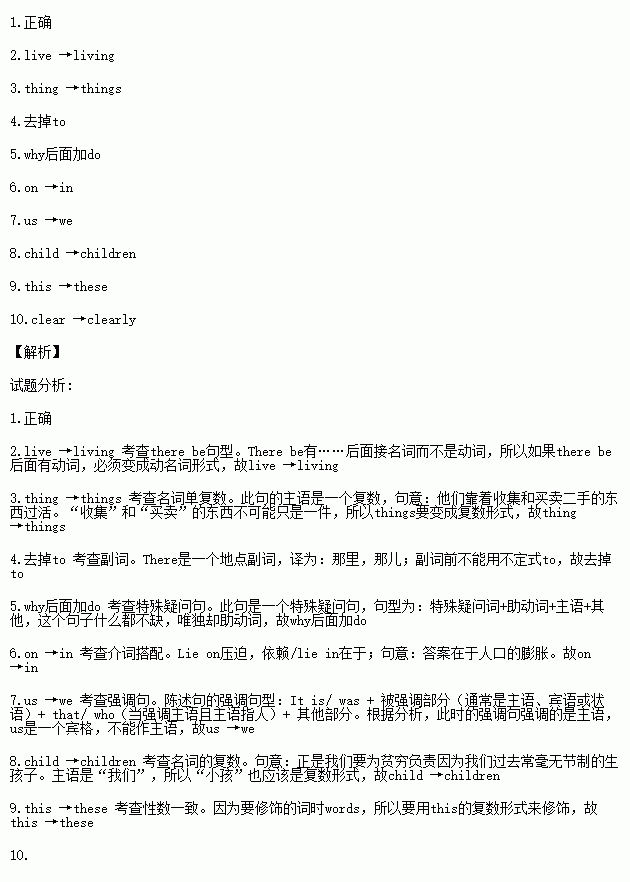题目内容
Though great progress has been made in science these years, there are still many people lived in poor conditions. They make their lives by collecting and selling used thing. Their children cannot go to school because they have not enough money to send their children to there. Why you think so many people still suffer from poverty now? The answer lies on the population explosion. A president of a developing country once said; “It is us who are to blame for the poverty because we used to ‘produce’ child without limit.” Although this few words sound simple enough, they have clear pointed out one of the causes of the population explosion.
练习册系列答案
 阅读快车系列答案
阅读快车系列答案
相关题目

